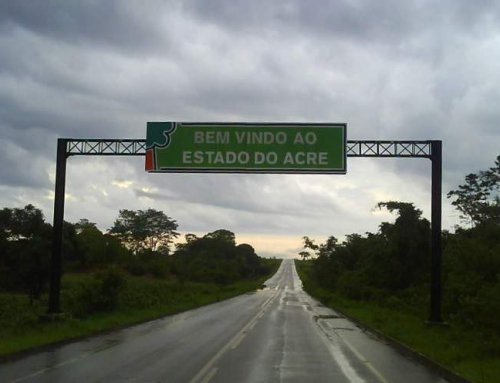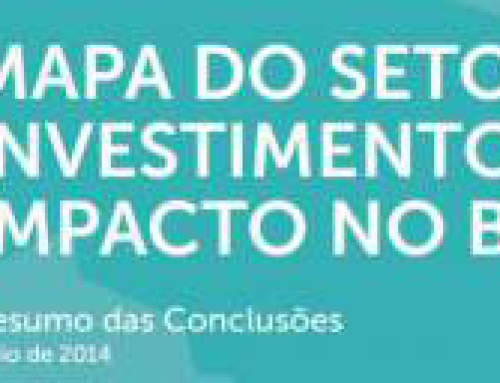When they created fund management firm Kaeté Investimentos in 2011, partners Luís Fernando Laranja and Otávio Ottoni had something clear in mind: they would focus on investments linked to natural resources and that would promote the regional development of areas like the North and Northeast regions, in a sustainable way.
Kaeté’s bet — in a way, also an attempt to set itself apart in this market — begins to show its first results. A venture that Mr. Laranja called “the largest fish farming project being implemented in the country” — and that has a fund managed by Kaeté among its partners — is expected to begin operation in October.
Kaeté is the manager of a fund for investment in sustainable companies in the Amazon launched in 2011 by the Brazilian Development Bank (BNDES), which holds 32% of capital in the Peixes da Amazônia project being set up in Rio Branco, Acre.
Kaeté, whose name means old-growth forest, was selected by BNDES to manage the R$ 100 million fund for investment in the so-called Legal Amazon. The area comprises the North region and the states of Mato Grosso and Maranhão. The largest shareholder in the FIP Empresas Sustentáveis na Amazônia, as the fund is called, is BNDES itself, and there are four other investors: Banco do Pará, the Acre Business Promotion Agency, Kaeté itself and a family group with operations in the Amazon.
Mr. Laranja says that the fund began to operate early last year. Since then, Kaeté prospected more than 130 companies. The target, he says, are the sectors of native or planted forests, renewable energy, agriculture, fish farming, sanitation and logistics.
To get money from this fund, investment has to meet sustainability criteria from the environmental and labor standpoints. And there are industries that are not eligible, such as tobacco and mining, he explains.
“Our goal is to focus on companies that generate regional development,” Mr. Laranja stresses. A veterinarian, he taught for ten years at the University of São Paulo. “We believe there is room for this type of investment,” adds Mr. Ottoni, a business manager who before Kaeté worked for Itaú BBA, McKinsey and BRZ Investimentos.
At Peixes da Amazônia, the fund managed by Kaeté made a R$ 15 million investment and is the largest shareholder. The total investment in the project — in the form of injections from partners and banking loans — was R$ 75 million. In addition to the BNDES fund, Peixes da Amazônia has as shareholders the Acre Business Promotion Agency, the Central Co-operative of Fish Farmers of Acre and a group of 18 local businesspeople.
Mr. Laranja says the venture is focused on the production of regional fishes, like pirarucu (or arapaima), spotted sorubim and tambaqui (or black pacu). The Rio Branco facilities, in a 65-hectare area, include center of reproduction, meal production and plant for processing the fishes.
The company will work in the integration system, as it happens in poultry production. “Partners will grow the fish. There are several types of integrated parties, since those originated from family farming to large producers,” he says. Among those that will grow the fishes there are 2,500 families linked to five local co-operatives and 100 to 200 larger producers. Peixes da Amazônia, Mr. Ottoni says, aims to produce 20,000 tonnes of fish a year.
Mr. Laranja says the goal is to serve the Amazonas, Acre and Rondônia markets, along with retailers and restaurants of the Southeast and South regions. But exporting fish produced in Rio Branco is also in the plans, Mr. Ottoni says.
The fish farming project aside, Kaeté also works in two other ventures. But in both cases the investments are still in the approval phase. The expectation, according to the Kaeté partners, is that this will happen in the second half.
One of them involves handling of native forest by a wood-processing company that already exists in Belém, Pará. The other project is for the implementation of a poultry and pork business in Brasileia, Acre. The state has not such type of operation and is currently supplied by chicken and pork meat produced in the South and Central-West regions.
The project includes integration with family agriculture, Mr. Laranja says. As in the agro-industries of other Brazilian regions, the plan is also to use the partnership system with farmers in the creation of poultry and swine.
In a first moment, the goal is the regional supply, but the intention is to reach also border areas with Peru and Bolívia, he says. And there are more ambitious plans for the project. The so-called Pacific route — bi-national road that connects the northwest of Brazil to the south coast of Peru through Acre — may enable exports of items produced in Brasileira to more distant regions, Mr. Laranja says.
Whereas some projects are in more advanced stage, Kaeté is also evaluating opportunities in segments including açaí, babassu and palm processing and in sanitation. Mr. Ottoni says Kaeté has five years to invest the BNDES fund money, counting from 2013. But given the scenario, the expectation is to complete the investments in a shorter timeframe, of three years.
“Always with the same focus,” Mr. Laranja says, Kaeté is also in the preliminary stage of considering new funds. And future investments of the asset manager may also have the Northeast region as destination. “The Northeast has potential. We are considering opportunities in animal protein,” he says.
Lack of local supply and income growth, which increases the consumption of proteins, explain Kaeté’s bet. One of the target industries is the dairy one, both in the North and in the Northeast. “The idea is to add value,” Mr. Laranja says.
Source: Valor Economico newspaper






